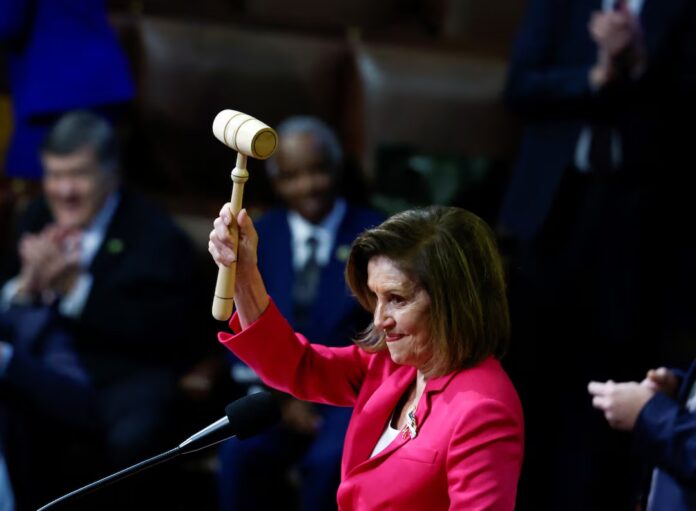
Nancy Pelosi, the first woman to hold the powerful position of Speaker of the U.S. House of Representatives, announced on Thursday that she will not seek reelection in 2026, marking the end of a nearly four-decade career that defined modern Democratic politics and reshaped Congress.
The 85-year-old California congresswoman, who was first elected in 1987, revealed her decision just days after voters in her home state approved Proposition 50, a redistricting measure designed to favor Democrats in five key congressional districts ahead of next year’s midterm elections.
“I will not be seeking reelection to Congress. With a grateful heart, I look forward to my final year of service,” Pelosi said in a statement posted on social media.
Pelosi’s retirement caps a storied career that saw her become one of the most consequential and polarizing figures in U.S. politics.
She served two historic stints as House Speaker, from 2007 to 2011 and again from 2019 to 2023, cementing her reputation as a master strategist and formidable negotiator who led her party through major legislative battles.
Her tenure was defined by fierce clashes with Republican leaders, particularly former President Donald Trump. Pelosi presided over two impeachments of Trump during his first term, both of which ended in Senate acquittals.
Their animosity became a defining feature of Washington politics, most memorably when Pelosi tore up a copy of Trump’s 2020 State of the Union address after he refused to shake her hand.
Following her announcement, Trump responded sharply from the White House, calling her “an evil woman who did a poor job.” A Pelosi spokesperson declined to comment on his remarks.
Despite years of partisan warfare, some Republicans acknowledged her political prowess. Representative Marjorie Taylor Greene, a staunch Trump ally, said Pelosi had “an incredible career for her party,” adding, “I wish we could get things done for our party like Nancy Pelosi was able to deliver for hers.”
Pelosi’s departure underscores growing generational tensions within the Democratic Party. Younger lawmakers have long urged veteran leaders to step aside, a sentiment that intensified after President Joe Biden withdrew from the 2024 race amid questions about age and fitness.
Though she stepped down from party leadership in 2023, Pelosi remained a towering presence in Congress. Her successor as House Democratic leader, Hakeem Jeffries of New York, praised her as “an iconic, legendary, transformational figure who has done so many things over so many years to make life better for so many people.”
Among Pelosi’s signature achievements was shepherding the Affordable Care Act through Congress in 2010, a legislative victory she has often described as her proudest accomplishment. She also championed women’s rights, LGBTQ+ equality, and human rights issues, earning respect from progressive activists across the country.
Pelosi’s long career was not without personal cost. In 2022, her husband, Paul Pelosi, was attacked in their San Francisco home by a right-wing extremist, an episode that underscored the growing toxicity of U.S. political discourse.
As she prepares to leave office at the end of her 20th term, Pelosi departs as a trailblazer who broke barriers, defied expectations, and helped shape American politics for nearly half a century.
“To say Nancy Pelosi shattered the glass ceiling is an understatement,” said Fatima Goss Graves, president of the National Women’s Law Center. “Her legacy will inspire generations of women to lead.”
Source: Reuters
Written By Rodney Mbua


















